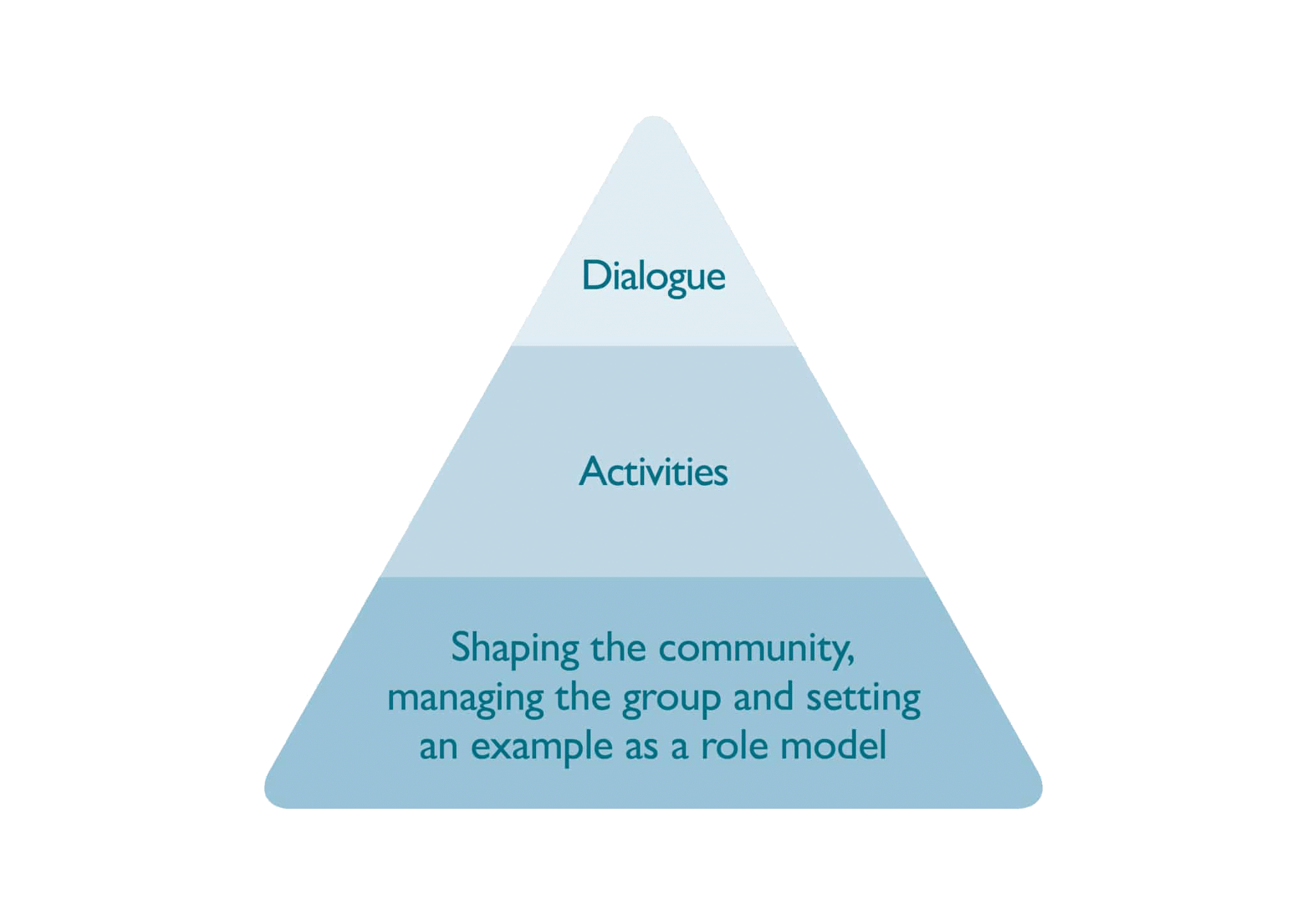THE FREE OF BULLYING
COMPETENCE CENTRE
The Mary Foundation & Save the Children Denmark
Copenhagen
Phone: +45 45 27 30 20
E-mail: freeofbullying@maryfonden.dk
Free of Bullying is aimed at preventing bullying among 0 to 9-year-old children. The programme consists of tools, methods and materials that childcare professionals can easily incorporate into children’s daily routines in childcare facilities, preschools and primary schools.
Free of Bullying is grounded in what experts have learned about why and how bullying occurs. A large body of contemporary research conducted by school bullying experts, such as Dorte Marie Søndergaard and Helle Rabøl Hansen, shows that bullying occurs in communities characterised by low tolerance, instability and insecurity.
What this community-based view of bullying (explained in more detail here) tells us is that one of the most effective ways to tackle the problem is to cultivate tolerant and inclusive communities. This means working proactively to strengthen the group’s culture by promoting strong, positive values.
Free of Bullying focuses on four core values that serve to strengthen children’s communities:
When our actions and behaviour are guided by these core values, we start to create communities where there is less room for bullying. Recognising this, Free of Bullying has been developed into a series of tools, methods and materials that help children experience and embrace these values.
Through a wide range of activities, the children learn good social skills, like what it means to be a good friend. They develop the courage to set their own boundaries and to defend others if they see them being mistreated. All of which helps create positive, tolerant and inclusive children’s communities.
While children are the primary target group for Free of Bullying, childcare professionals and parents are ultimately the ones responsible for cultivating positive communities for them. As adults, they are the ones who can foster positive relationships with and among the children. And as role models, they can embody the values and support the children in developing good social skills.
Nevertheless, childcare professionals can only create a high-tolerance culture among children if this is reflected in their own staff culture too. That is why it is equally important that they are able to work in and embrace an inclusive and respectful environment. The same applies to their interactions with parents.
Free of Bullying therefore includes materials aimed at all those who shape the children’s community: children, childcare professionals and parents.
The Free of Bullying materials have been carefully designed to support the following key focus areas of the programme:
Notably, Free of Bullying places most emphasis on giving childcare professionals the skills and tools to create a strong community and set an example as a role model. The focus is on planning and thinking about how to incorporate the four core values into the daily routine and how to provide opportunities for every child to thrive.
This work represents the bottom tier of the pyramid below. This tier – upon which everything else rests – is the largest and thus carries the most weight. The middle of the pyramid is smaller and covers all the games and exercises that focus on cultivating community spirit among the group. And finally, the smallest top tier is where the dialogue with the children about how to be a good friend to others comes in.

The Free of Bullying materials are supplied in three different suitcases aimed at three different age groups:
Depending on the age group, the suitcases contain: Buddy Bear*, conversation boards, music, posters, massage activities, outdoor games, books and other practical tools to engage the children in a wide range of social practices and activities. Below are just a few examples of the Free of Bullying materials. Scroll over the images to read how each element is used to support the child’s development and social skills.
Below are also a few examples of some of the Free of Bullying activities, where you can read about how to work with the Free of Bullying values.
Free of Bullying uses independent researchers to evaluate the effectiveness of the programme on an ongoing basis. They assess how satisfied users are with the content of existing and new materials and how easy they are to use.
In 2017, researchers also conducted a quantitative impact evaluation of Free of Bullying. This study found a correlation between the extent and intensity of the institutions’ work with the various elements in the programme and the level of impact achieved. It also identified parental involvement as a particularly important factor to work with.
In other words, the more intensively and consistently institutions work with the programme and the more they engage parents, the greater the measurable positive impact on children’s ability to express their feelings, decode others’ feelings and understand others’ feelings – all of which help prevent bullying. Knowing this, we have boosted our efforts to encourage institutions to incorporate the materials more extensively and introduced more tools and activities to strengthen parental engagement.
For more information, you can download a summary or full version of the Free of Bullying and Children’s socioemotional skills report, and access other studies here.